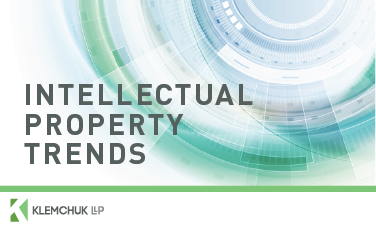Originally published by Peggy Keene.

Photographer and Journalist Associations Sue Texas Over State Drone Laws
The debate over Texas state drone laws and privacy has increasingly raged on since Amazon first made headlines when they launched multimedia campaigns that touted the introduction of unmanned drones into their delivery fleet. With federal guidance lacking, state laws have filled the void leaving photojournalists at odds with Texas’ drone laws.
Texas State Drone Laws Attempt to Guide Issues Surrounding Drones and Public Privacy
While the jurisdiction of drones would typically fall under federal aviation law, the federal government has provided little guidance and practically no response to the many questions posed by consumers and attorneys alike. As such, state law has often had to step in due to lack of federal response to many of today’s legal questions regarding drones and privacy. Unfortunately, one of the major wrinkles from having no uniform federal guidance is that states vary widely in how they regulate drone usage.
In Texas, for example, legislators have chosen to treat the use of drones differently. Specifically, Texas strictly limits the use of drones in some fields but not in others. Thus, for big companies like Bell, Amazon, and Uber, their use of drones has not been restricted because their use often falls under exemptions made for commercial use. For individuals or journalists, on the other hand, more personal use tends to be limited or straight out prohibited.
Photojournalist Associations Claim Differential Treatment Imposed from Texas Drone Laws
In response to the drastic difference in treatment by the law, the National Press Photographers Association and the Texas Press Association have teamed up to sue Texas over what they perceive to be unfair treatment. Specifically, their lawsuit alleges that Texas law’s preferential treatment to some companies’ use of drones over others’ violates the First and Fourteenth Amendment rights of journalists in the state because it bans journalists from using the exact same type of drone technology that companies like the aforementioned technology giants are allowed to use. Under current Texas state law, photographers and journalists are forbidden from using drones to capture certain types of footage over a variety of different sites.
Passed in 2013, the Texas state law specifically states that drones are prohibited from being used as “surveillance” devices, which means drones that are deemed to being used to photograph or record individuals, private property, or other “critical infrastructure facilities” are banned by law. The same law exempts certain industries, however, from this prohibition if the same drones are to be used for commercial or governmental use. As these “facilities” can vary from power plants, to prisons, or even to sports stadiums, journalists have said that the 2013 Texas state drone law is overly broad and unfairly impacts their ability to do their jobs because anyone found violating the law can be jailed up to 180 days and/or fined up to as much $2000 per violation.
Is Texas Drone Law Unconstitutional?
The National Press Photographers Association and the Texas Press Association have claimed that the Texas drone law is a violation of journalist rights and unconstitutional because it specifically violates the First Amendment right to freedom of the press. Moreover, they argue that the law’s specific use of the term “surveillance” is vague, and as such, illegally narrows the rights already granted to the press under federal law.
On the other hand, some may see the Texas drone law and exemptions as an attempt to satisfy both commercial needs that benefit the public and the general public’s privacy interests. Without better federal guidance on the issue, states vary greatly in how they try to balance the interests surrounding drone use.
As drones become more ubiquitous in today’s technological world, it would behoove counsel and consumers alike to follow this Texas case as it winds its way through the courts, because it can have big impacts on consumer privacy and how courts view drone law under a constitutional lens.

intellectual property litigation
You may also be interested in:
Sign up for and explore our content and thought leadership here.
About the Firm:
Klemchuk LLP is a litigation, intellectual property, transactional, and international business law firm dedicated to protecting innovation. The firm provides tailored legal solutions to industries including software, technology, retail, real estate, consumer goods, ecommerce, telecommunications, restaurant, energy, media, and professional services. The firm focuses on serving mid-market companies seeking long-term, value-added relationships with a law firm. Learn more about experiencing law practiced differently and our local counsel practice.
The firm publishes Intellectual Property Trends (latest developments in IP law), Conversations with Innovators (interviews with thought leaders), Leaders in Law (insights from law leaders), Culture Counts (thoughts on law firm culture and business), and Legal Insights (in-depth analysis of IP, litigation, and transactional law).
Curated by Texas Bar Today. Follow us on Twitter @texasbartoday.
from Texas Bar Today https://ift.tt/2Vt30ak
via Abogado Aly Website
No comments:
Post a Comment